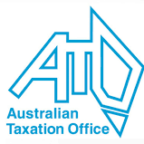

When conducting a business valuation for the Australian Taxation Office in Australia, businesses need to comply with the guidelines set by the Australian Taxation Office (ATO). The ATO provides specific guidance on how businesses should value their assets, particularly for capital gains tax (CGT) purposes. Here are some key considerations for business valuations for the ATO:
Compliance with ATO Guidelines:
Ensure that the valuation process aligns with the ATO guidelines and regulations. The ATO provides detailed information on valuations, including the use of market value and the appropriate valuation methodologies.
Market Value:
For the purpose of a business valuation for the Australian Taxation Office, the ATO generally requires businesses to use the market value as the basis for valuing assets. Market value is defined as the amount that a willing buyer would pay to acquire the asset from a willing seller in an arm’s length transaction.
Valuation Methods:
Choose appropriate valuation methods based on the nature of the assets. Common methods include the market approach, income approach, and cost approach. The ATO generally prefers the market approach for valuing most assets.
Independent and Qualified Valuers:
Engage independent and qualified valuers, especially for complex or significant valuations. The ATO emphasizes the importance of using experienced professionals to ensure accuracy and compliance.
Documentation:
Thoroughly document the valuation process, methodologies used, assumptions made, and the data sources relied upon. Proper documentation is crucial to demonstrate compliance with ATO requirements.
Timing of Valuations:
Consider the timing of valuations, especially for CGT purposes. Valuations should generally be as close as possible to the relevant date for tax purposes, such as the date of acquisition or disposal of an asset.
Valuation of Specific Assets:
Be aware of specific requirements for valuing different types of assets, such as real property, shares, intellectual property, and goodwill. The ATO provides specific guidance for each asset class.
Changes in Control or Ownership:
Consider the impact of changes in control or ownership on the valuation. Changes in these factors may trigger CGT events, and the valuation should reflect the circumstances surrounding such events.
Professional Advice:
Seek professional advice from tax experts and valuers who are knowledgeable about ATO guidelines. This is particularly important to navigate complex valuation issues and ensure compliance with Australian tax laws.
Business owners should stay updated on any changes to tax laws and ATO guidelines that may affect the valuation process. The assistance of tax professionals with expertise in Australian taxation is highly recommended to ensure accurate and compliant business valuations for the ATO.
One thing is paramount in Business Valuation, and that is that the valuer has the experience and qualifications to provide a valuation that is accepted for taxation, merger and acquisition or litigation purposes.
If you require a business valuation for tax purposes, contact Lee Goldstein on 1800 566 872

